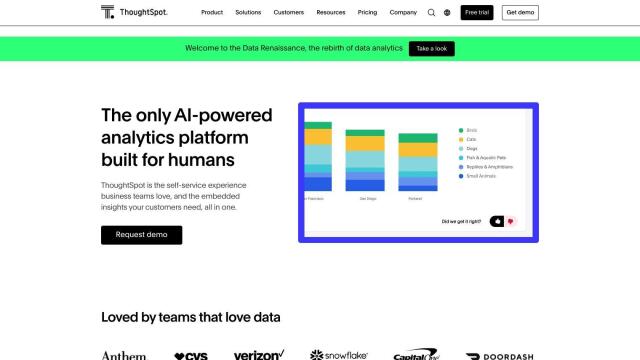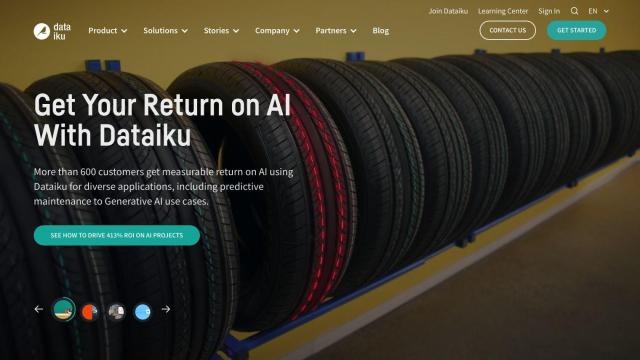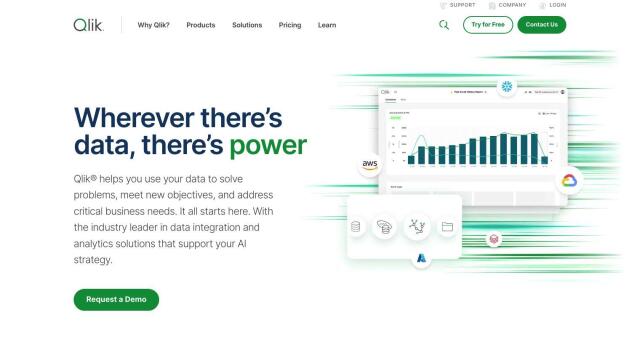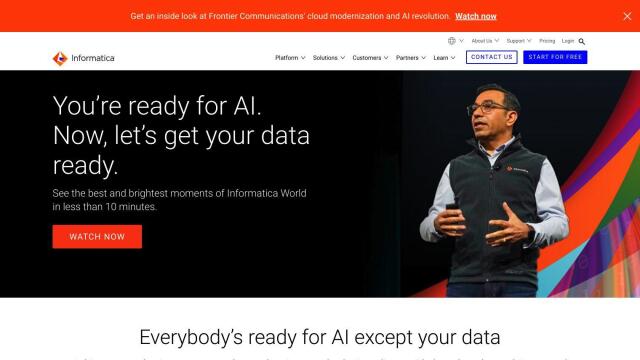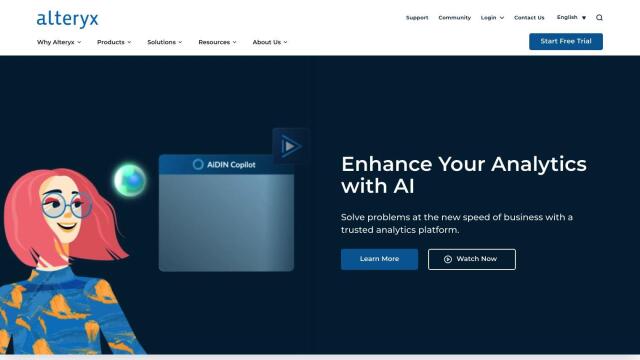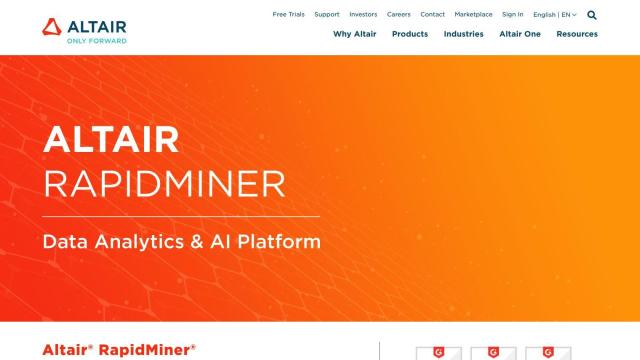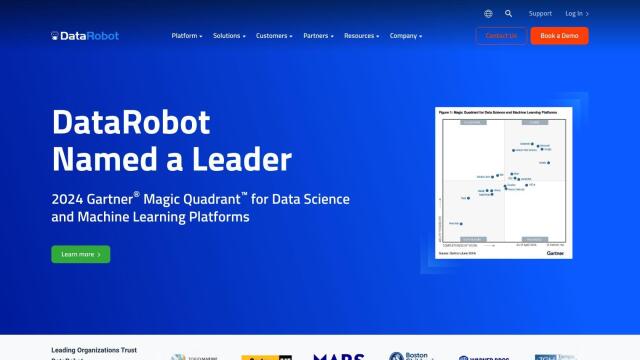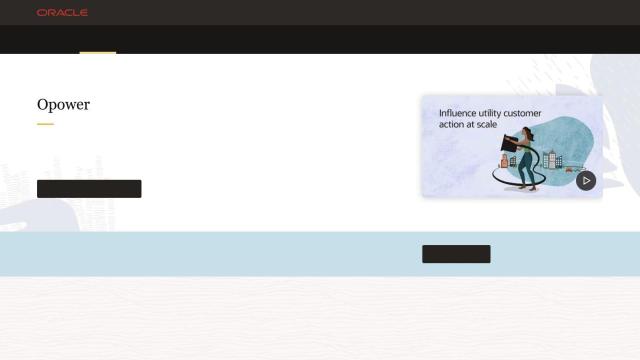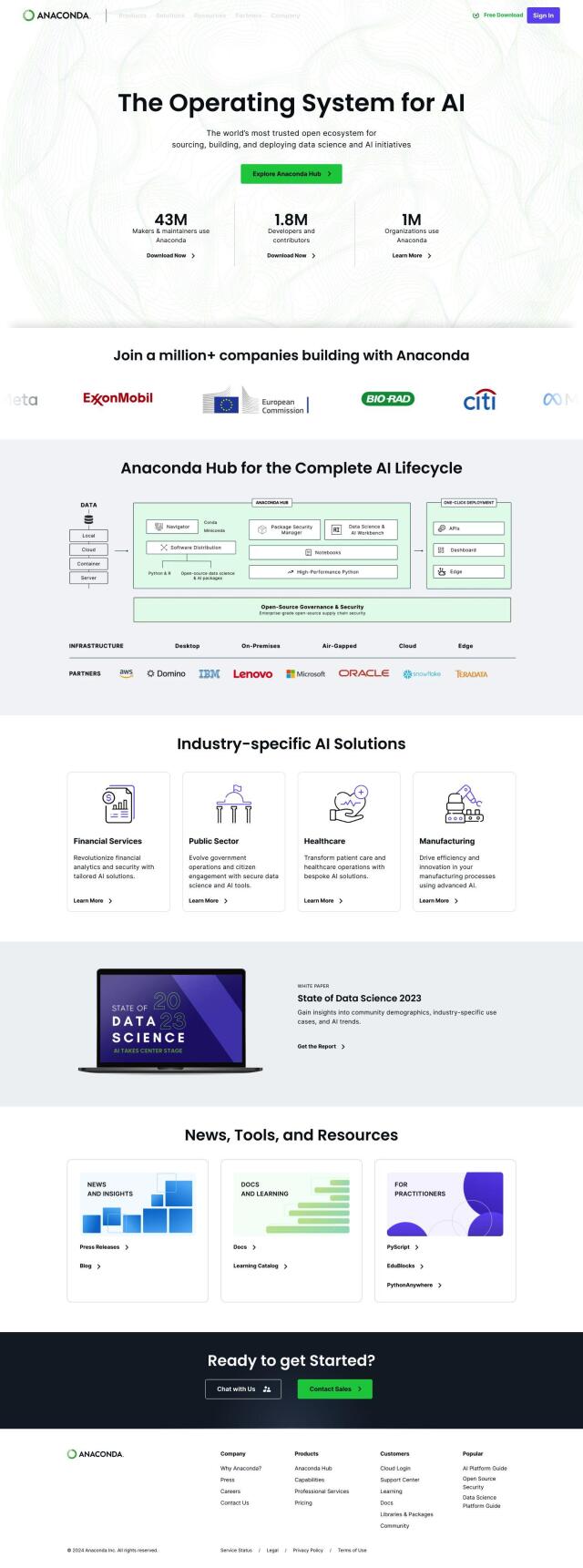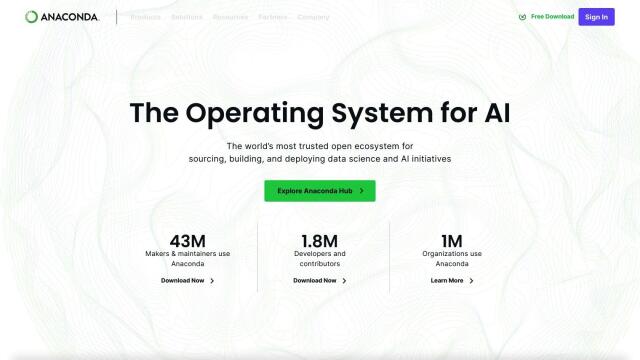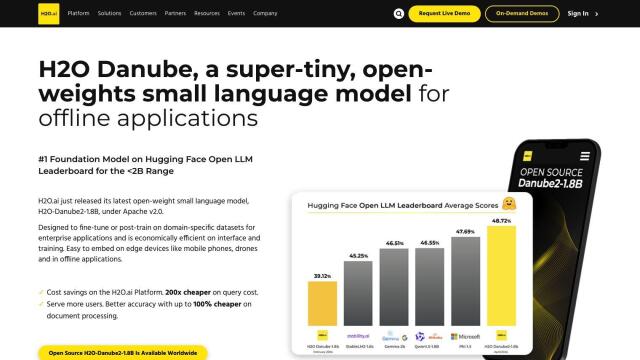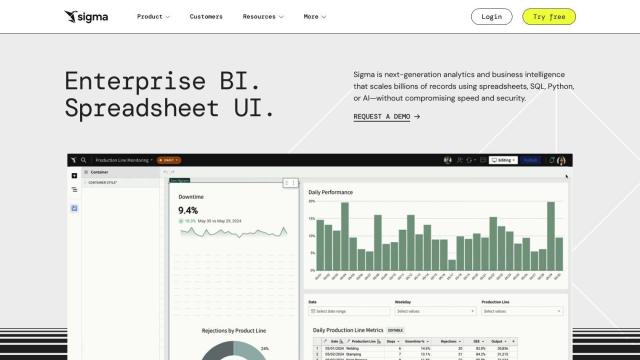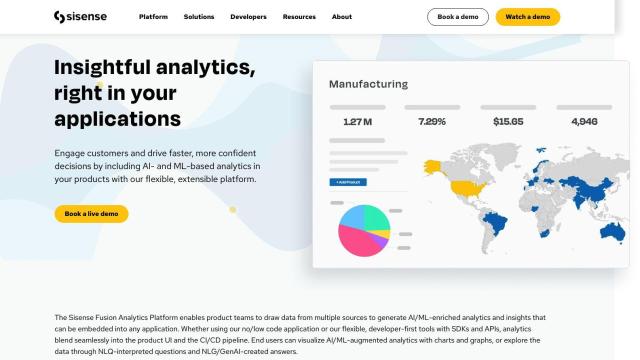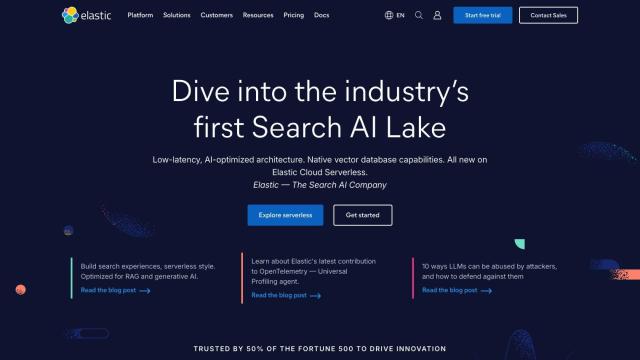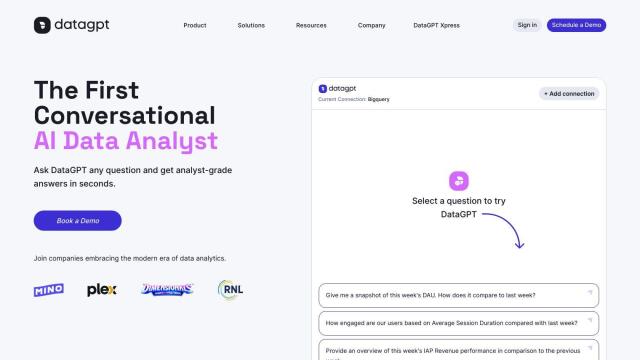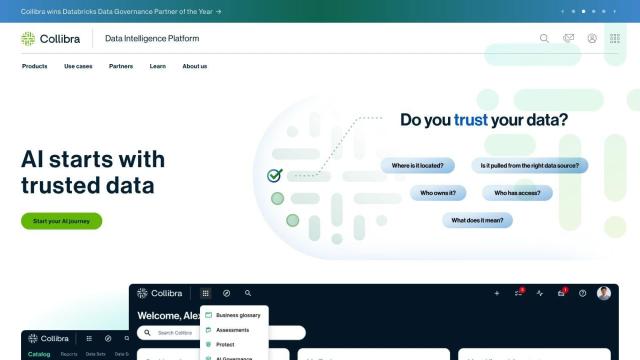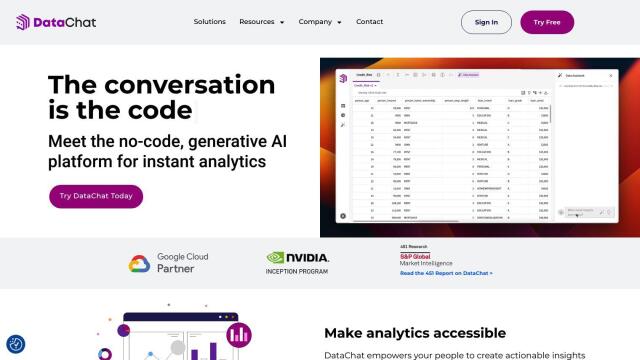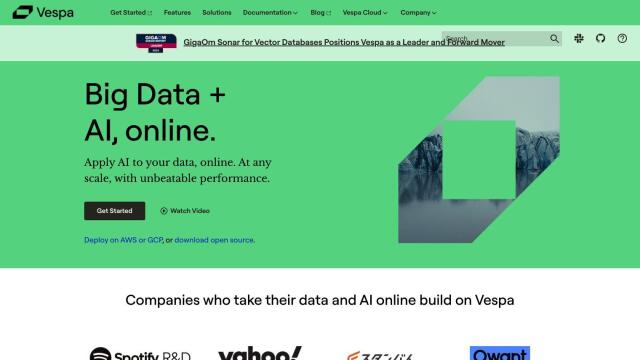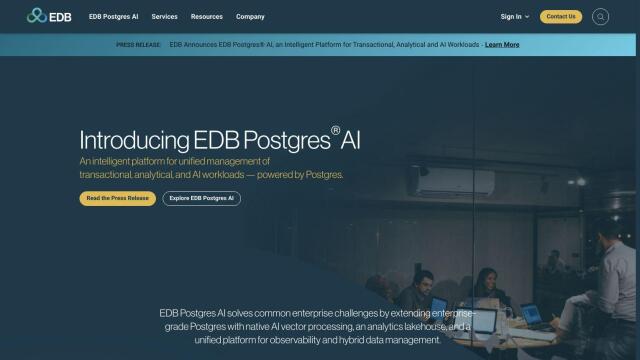Question: I need a platform that can process and analyze large datasets to gain new insights and drive business growth.

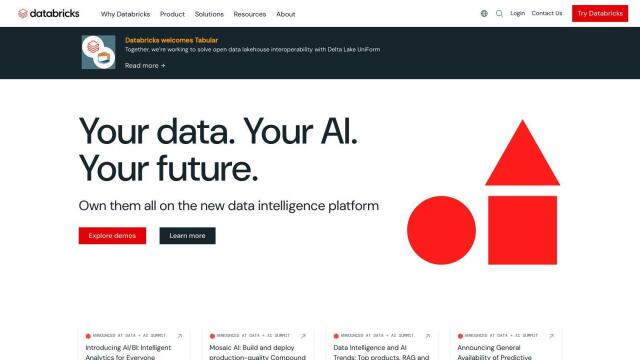
Databricks
If you need a broad platform for processing and analyzing big data, Databricks could be a good option. It marries generative AI with data smarts so you can build, deploy and run AI applications directly on your data without losing control or privacy. The platform offers a broad range of tools and integrations, including ETL, data ingestion, business intelligence, AI and governance, all on a lakehouse foundation for scalable and unified data management.

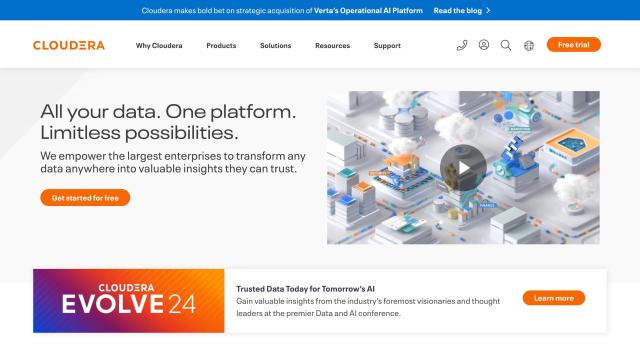
Cloudera
Another powerful option is Cloudera, a hybrid data platform for securely ingesting, processing and analyzing data in the cloud and on-premises environments. It offers real-time insights, automated data pipelines, large-scale data analytics and accelerated machine learning. Built on Apache Iceberg, Cloudera ensures data reliability and flexibility, making it easier to deploy and manage data lakehouses across multiple clouds and break down data silos.

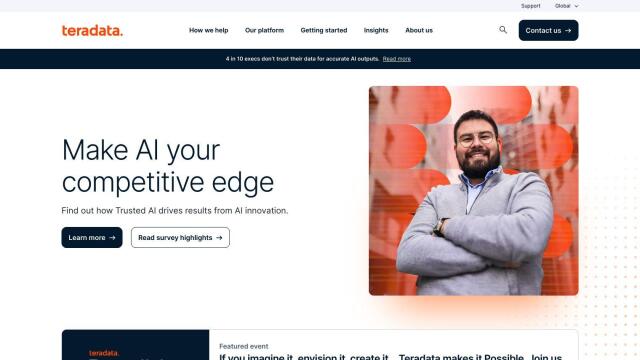
Teradata
For a flexible and scalable option, check out Teradata. Teradata's cloud analytics and data platform, VantageCloud, unifies and harmonizes data across an organization, giving you a single, unified view of your data and faster answers. It supports a range of workloads, including AI/ML, lakehouses, data warehouses and transactional workloads, and can be deployed in public cloud, hybrid cloud or on-premises environments. The platform is designed to accelerate innovation, optimize resources and improve data-driven decision-making.

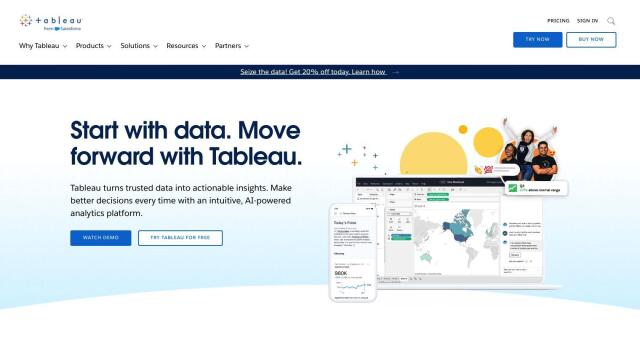
Tableau
Last, Tableau is a powerful business intelligence and analytics platform that connects to a wide range of databases. It offers a drag-and-drop interface for creating visualizations, AI/ML abilities and collaboration tools. Tableau offers several pricing tiers, including a free trial, and has been used successfully by companies like Whole Foods Market and Keybank to gain actionable insights and drive business growth.

